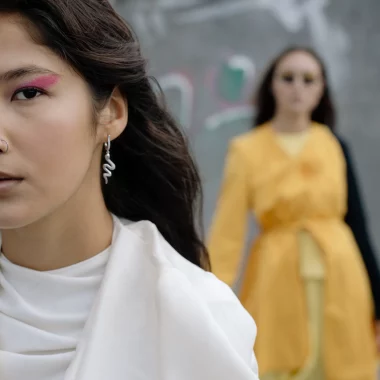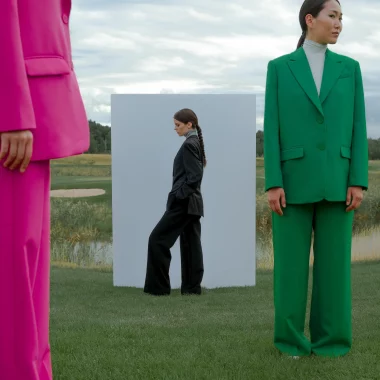written by Julstory editors
Zero-waste fashion is a sustainable design philosophy that seeks to eliminate textile waste from the fashion industry. This innovative approach involves designing garments in a way that generates little to no waste during production, distribution, and disposal.
In this article, we’ll explore the inspiring work of designers who are leading the charge in zero-waste fashion, implementing groundbreaking practices to reduce waste and create a more sustainable fashion industry.
Designers Leading the Zero-Waste Movement
- Daniel Silverstein
Daniel Silverstein, a New York-based designer, is known for his innovative zero-waste designs. He uses creative pattern-making techniques and strategic fabric utilization to ensure minimal waste is generated during production. Silverstein also incorporates upcycled materials and repurposes fabric scraps, breathing new life into previously discarded materials.
- Tonlé
Tonlé, a Cambodian brand founded by Rachel Faller, creates beautiful garments from pre-consumer textile waste, such as factory remnants and offcuts. With a focus on ethical production and fair wages for workers, Tonlé is not only committed to reducing waste but also to promoting social responsibility within the fashion industry.
- Christina Dean – The R Collective
Christina Dean, the founder of The R Collective, has made it her mission to reduce waste in the fashion industry. The brand partners with luxury fashion houses and manufacturers to source high-quality, discarded materials and transforms them into stylish, upcycled clothing.
- Eileen Fisher
Eileen Fisher’s Renew program is a shining example of a larger brand embracing zero-waste principles. The program collects used Eileen Fisher garments, repairs or upcycles them, and resells them at a discounted price. This initiative not only extends the life of the garments but also prevents them from ending up in landfills.
Innovative Zero-Waste Techniques
Cutting-edge pattern making: Zero-waste designers employ innovative pattern-making techniques to create garments that utilize the entire fabric, leaving no scraps behind. Methods such as tessellation and modular design can be used to maximize fabric usage and minimize waste.
Upcycling and repurposing materials: Designers are increasingly incorporating upcycled and repurposed materials into their collections. This can include using vintage fabrics, salvaged trims, or even transforming existing garments into new designs.
Circular design principles: Circular design involves creating garments with their entire lifecycle in mind, ensuring that they can be easily repaired, repurposed, or recycled at the end of their life.
The Impact of Zero-Waste Fashion on the Industry
As more designers adopt zero-waste practices, the fashion industry is gradually shifting towards a more sustainable and environmentally conscious future. This movement not only reduces the amount of waste generated but also encourages brands to rethink their production processes and prioritize sustainability.
Zero-waste fashion also raises consumer awareness about the environmental impact of their clothing choices, encouraging them to be more mindful when making purchases.
Supporting Zero-Waste Fashion
There are several ways you can support the zero-waste fashion movement:
- Educate yourself: Learn more about the principles of zero-waste fashion and the designers who are championing it.
- Shop consciously: Choose to support brands that prioritize sustainable practices and zero-waste production.
- Extend the life of your clothing: Care for your garments properly, repair them when needed, and consider upcycling or repurposing them when they’re no longer wearable.
- Spread the word: Share information about zero-waste fashion with friends and family to raise awareness and encourage others to make more sustainable choices.
The zero-waste fashion movement is a powerful force for change in the industry, showcasing the potential for sustainable and innovative design practices to make a real difference.
By supporting the work of zero-waste designers and adopting more environmentally conscious habits, we can help drive the shift towards a greener, more responsible fashion industry.
As consumers, we hold the power to influence the market and encourage brands to prioritize sustainability. By embracing zero-waste fashion, we can play a role in reducing the environmental impact of the clothing we wear and help create a better future for our planet.







